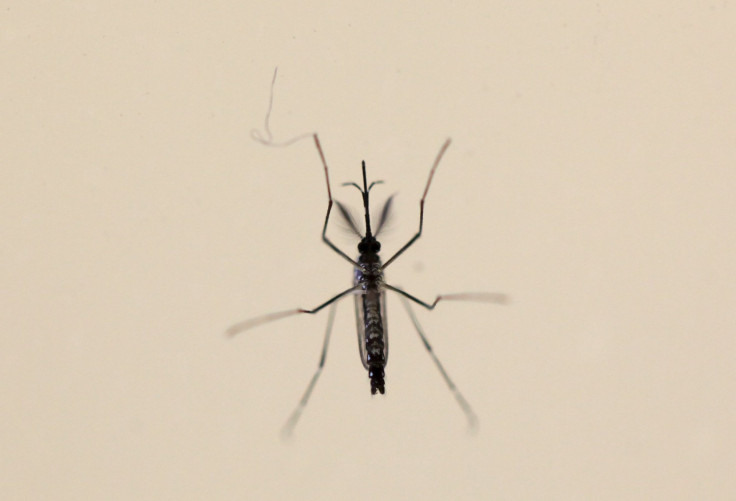Zika Mosquito's Habits Force New Strategy By U.S. Cities, States

CHICAGO (Reuters) - U.S. states and cities need to adopt a different mosquito-fighting strategy to battle the species carrying the Zika virus as an outbreak that started in Brazil heads north with warmer weather in the coming weeks, health officials said on Friday.
The World Health Organization declared a global health emergency in February as the virus spread rapidly in the Americas, citing Zika's link to the birth defect microcephaly and Guillain-Barre syndrome, an autoimmune disorder in adults that can cause paralysis.
The mosquito species responsible for spreading the virus by biting people lives in and around homes, making traditional evening insecticide fogging campaigns from sprayers mounted on trucks an ineffective option, U.S. Centers for Disease Control and Prevention officials said.
CDC Director Dr. Thomas Frieden said health departments need to take a "four corners approach," targeting the Aedes aegypti mosquitoes indoors and outdoors as well as focusing on killing both larvae and adult insects.
"We think we can at least have significant knockdown and potentially significant disease control," Frieden told state and local health officials and others taking part in a "Zika Action Plan Summit" at the agency's Atlanta headquarters.
Most mosquito abatement efforts in U.S. states target nuisance mosquitoes, those that bite at dusk and ruin picnics and barbecues but pose little public health threat. But Aedes aegypti is a daytime biter that dines exclusively on humans, biting several people in a single blood meal.
Aedes aegypti has been dubbed "the cockroach of mosquitoes" because it is so hard to kill, Frieden said.
"Unfortunately, in some parts of the U.S., it has widespread resistance to some insecticides. But that doesn't mean it's impossible," Frieden said.
Zika has been linked to thousands of suspected microcephaly cases in Brazil. The virus is spreading rapidly in Puerto Rico, a tropical island territory of the United States that is expected to be hardest hit by the current outbreak.
Zika is expected to reach southern U.S. states soon as temperatures rise in spring and summer months. As in Puerto Rico, the main focus of the U.S. plan is to protect pregnant women from exposure to Zika-carrying mosquitoes.
'PATCHWORK' MOSQUITO CONTROL
Dr. Lyle Petersen, director of the CDC's Division of Vector-Borne Disease, said U.S. mosquito abatement is handled by a "patchwork" of mosquito-control districts that are coordinated and funded locally. Some may not be linked to local health departments.
Most of these programs, Petersen said, are "primarily funded to control nuisance mosquitoes rather than to control disease-spreading mosquitoes."
Surveillance systems in most states and municipalities are geared toward night-biting mosquitoes that breed in larger bodies of water, and are not likely to detect Aedes aegypti, which breeds in flower pots, tires, trash and small pools of water.
Unlike many other types of mosquitoes, Aedes aegypti's eggs can dry out and cling to container surfaces, waiting for the next rain to revive them.
At the meeting, Petersen showed a map of mosquito abatement districts in U.S. states. One attendee said "abatement" in his area consisted of a man with a pickup truck who plowed snow in the winter and did some mosquito spraying during warmer months.
Many officials expressed concerns about the cost of efforts to deal with Zika. Daniel Kass, New York City's deputy commissioner for environmental health, estimated the city, which has high volumes of travelers and prior outbreaks of Yellow fever and a recent case of dengue, will spend $5 million to $6 million on Zika preparedness. Aedes aegypti is not common in New York City, but it is home to Aedes albopictus, another mosquito thought capable of carrying Zika.
Umair Shah, executive director of the health department in Harris County, Texas, where Aedes aegypti mosquitoes are common, said he plans to spend about half that much. The county includes the city of Houston.
The Obama administration has asked Congress for about $1.9 billion in emergency funds to combat Zika but has encountered opposition from Republicans who contend health agencies should have enough money from prior funding for Ebola virus preparations.
Amy Pope, the White House deputy homeland security advisor, said the federal government has already diverted some of the funds from global Ebola efforts for Zika efforts in Puerto Rico. Pope said inaction by Congress is forcing health officials to make difficult choices.
Dr. Edward McCabe, the March of Dimes Foundation's medical director, said most birth defects cannot be prevented because their cause is not known. With Zika, the government could save "dozens or even hundreds" of newborns from devastating birth defects, McCabe said.
(Reporting by Julie Steenhuysen; Editing by Michele Gershberg and Will Dunham)



























